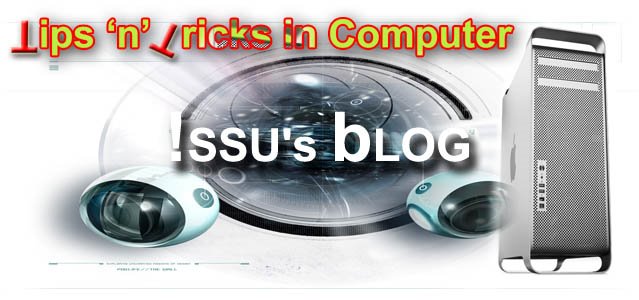What is disk defragmentation?
Imagine you have important papers randomly scattered all over your desk—in order to find something, you have to go through the entire pile each time. If you took the time to organize them into files, you could quickly and easily find what you're looking for.
Computers tend to save changes to a file to the largest continuous space on the hard disk, which can often be in a different place than where other parts of the file are stored. Over time, your hard disk can become "fragmented," which means that your files are scattered in pieces across your hard disk. Every time you go to access a file, then, your computer must search the entire hard disk to find all the pieces related to that file.
Excessive fragmentation slows down your computer's response time, so it's a good idea to defragment your hard disk regularly.
Defragmentation sounds serious. Is it complicated?
Not at all. Regularly defragmenting your hard disk helps your PC access files more quickly and efficiently. The Windows Live OneCare safety scanner can assess the fragmentation level of your hard disk and then help you defragment it (that is, reorganize the files on your hard disk) for better performance.
With your files stored neatly, without fragmentation, your PC should be able to perform more quickly and efficiently.
How do I defragment my hard disk?
The Windows Live OneCare safety scanner's tune up scan will look at your hard disk and tell you if it's time to defragment it. It's easy—just be sure to close all other open programs, then click Tune Up Scan in the Tune Up Center.
The tune up scan will then check your hard disk for its level of fragmentation and if it's more than 10% fragmented, recommend that you defragment it. You can then choose to follow the recommendation or not. Keep in mind that defragmentation can take a while; especially the first time you do it. You may want to do this when you don't need to be using your computer.
How often should I do this?
Its recommend a complete scan once a month. For always-on security service, check out Windows Live OneCare, which provides a two-way firewall, virus protection, and monthly tune-ups for routine maintenance and optimal PC performance.
Imagine you have important papers randomly scattered all over your desk—in order to find something, you have to go through the entire pile each time. If you took the time to organize them into files, you could quickly and easily find what you're looking for.
Computers tend to save changes to a file to the largest continuous space on the hard disk, which can often be in a different place than where other parts of the file are stored. Over time, your hard disk can become "fragmented," which means that your files are scattered in pieces across your hard disk. Every time you go to access a file, then, your computer must search the entire hard disk to find all the pieces related to that file.
Excessive fragmentation slows down your computer's response time, so it's a good idea to defragment your hard disk regularly.
Defragmentation sounds serious. Is it complicated?
Not at all. Regularly defragmenting your hard disk helps your PC access files more quickly and efficiently. The Windows Live OneCare safety scanner can assess the fragmentation level of your hard disk and then help you defragment it (that is, reorganize the files on your hard disk) for better performance.
With your files stored neatly, without fragmentation, your PC should be able to perform more quickly and efficiently.
How do I defragment my hard disk?
The Windows Live OneCare safety scanner's tune up scan will look at your hard disk and tell you if it's time to defragment it. It's easy—just be sure to close all other open programs, then click Tune Up Scan in the Tune Up Center.
The tune up scan will then check your hard disk for its level of fragmentation and if it's more than 10% fragmented, recommend that you defragment it. You can then choose to follow the recommendation or not. Keep in mind that defragmentation can take a while; especially the first time you do it. You may want to do this when you don't need to be using your computer.
How often should I do this?
Its recommend a complete scan once a month. For always-on security service, check out Windows Live OneCare, which provides a two-way firewall, virus protection, and monthly tune-ups for routine maintenance and optimal PC performance.




0 comments:
Post a Comment